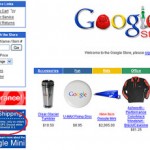 New York— Facebook, the popular social networking website has filed a lawsuit against
New York— Facebook, the popular social networking website has filed a lawsuit against
, a Brazilian start-up service has bumped into a problem in its pursuit to build a business that allows users to control all their social network profiles across multiple sites (Facebook, Orkut, Hi5, MySpace, etc.), through one portal.
This initiative on part of Power.com has not impressed the popular social networking portal Facebook as they have filed a lawsuit on December 30 in the United States District Court in San Jose, Calif., alleging that the service has caused “irreparable and incalculable harm” from copyright and trademark infringement. Facebook is also claiming that Power.com is in violation of the Digital Millennium Copyright Act, CAN-SPAM Act, and the Computer Fraud and Abuse Act, among other charges.
Here is how Power.com functions: Users provide their log-in details for various social networks and messaging clients to Power.com, which then delivers the data from those sites and services for its users to view the pages without even visiting them. For example, you can view all of your friends, their status updates, visit their profile pages, and even communicate with multiple friends on multiple social networks–all in one place.
However, Facebook opposes the concept that Power.com has been wooing the social networking giant’s users and storing its user names and passwords. It has requested that Power.com use Facebook Connect instead of asking users for their log-in information and has been in discussions with the start-up for a month, according to The New York Times.
“After discussing the issue with Power.com for about a month without reaching a resolution, we filed a lawsuit to enforce our terms of service, maintain the integrity of our site and to assure our users’ privacy and security is protected,” Facebook spokesman Barry Schnitt said in a statement.
Power.com removed access to Facebook after the claim was filed.
While a month ago, when the company was about to make its debut into the U.S., CEO Steve Vachani told the Times that Power.com was in fine legal standing because it only accesses other sites’ content when a user voluntarily logs in. He likened Power.com’s actions to the way social networks import contact lists from e-mail services or the way Meebo accesses users’ instant message accounts.
Later, Power.com announced that the dispute has been resolved and that Power.com will use Facebook Connect starting in late January. “We support mutual industry cooperation to help responsibly create a borderless Web,” Vachani said in a statement. “Power.com is focused on providing value-added services to social network users, and it is not necessary for us to store the user’s name and password if a site prefers that we do not.”
This in the same way corresponds to the actions Facebook took to block Google Friend Connect from accessing Facebook accounts last May. When third parties access Facebook, they want it done the way they want it done – via the API and Facebook Connect. Other methods, even if approved by the users themselves, are going to be aggressively countered.
Facebook — seemingly feeling the pressure from FriendFeed, Twitter, and other social sites in a series — carrying out its own compiling of third-party sites.
In fact, Power.com says it will soon announce a new industry standard called “Social InterConnect” that the company says will allow users to share their account information for any site with any other site without the host site storing the user name and password.
Power.com started rolling out its service in the United States late last year. It has raised money from some splashy backers including Powerset’s Barney Pell (his company was bought by Microsoft) and celebrity technology analyst and cosmonaut-in-training Esther Dyson.


